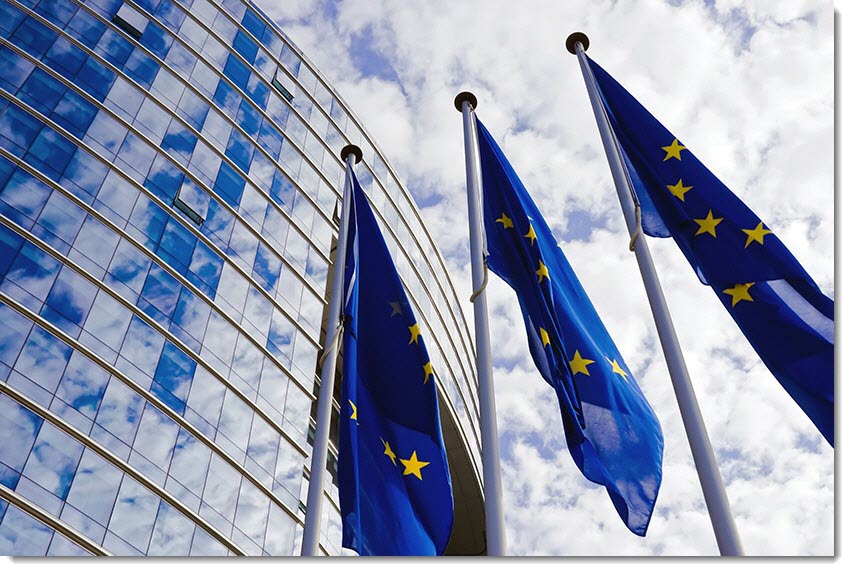
04/12/2023
EU Insight, 1 December 2023
Brussels, 1 December 2023
CO-LEGISLATORS AGREE ON NEW RULES TO REDUCE INDUSTRIAL EMISSIONS
The Council and the European Parliament concluded negotiations on the revision of the Industrial Emissions Directive. Overall, the Directive aims to address pollution proceeding from industrial installations, including intensive livestock farms, and thus contributes towards the EU’s zero pollution targets. Concretely, the new rules set specific emission limit targets per covered sector and expand the scope of the Directive to also cover mining activities. Failure to comply with the established limits could result in fines of at least 3% of the infringing company’s annual turnover. In addition, the new rules aim to improve access to emission reporting data, via the newly established Industrial Emissions Portal.
EU FINDS NEW AGREEMENT ON HYDROGEN AND DECARBONISED GAS PACKAGE
The Council and Parliament reached an agreement on the Directive of the Hydrogen and Decarbonised Gas package. The package consists of a Directive and a Regulation, which both aim to support the integration of renewable and low-carbon gases into the energy system, and as such contribute to the EU’s 2050 climate target. Concretely, the package focuses on establishing a regulatory framework for hydrogen infrastructure and markets, by integrating network planning, enhancing consumer protection, and security of supply. Having reached a provisional agreement of the first half of the package, co-legislators will seek to finalise negotiations on the Regulation by the end of the year.
COMMISSION PRESENTS EU GRID ACTION PLAN
The European Commission presented a new action plan on electricity grids, aiming to modernize and expand the European grid framework to prepare it for the necessary green transition. The Commission sets out 14 targeted non-legislative actions, to be implemented between 2024 and 2025, with the objective to make Europe’s electricity grids stronger, and increase their interconnectedness, digitalisation, and cyber-resilience. Concretely, the actions aim to accelerate the development and implementation of new project by streamlining financing and permitting processes. Additionally, the plan aims to encourage investment by improving long-term planning and introducing incentives to facilitate grid build-out.
EU RATIFIES FREE TRADE AGREEMENT WITH NEW ZEALAND
The EU ratified its free trade agreement with New Zealand, following the endorsement by the Council and the European Parliament. With negotiations on the deal concluding in July, the co-legislators have rubberstamped the deal, paving way for New Zealand to complete its ratification procedure. Overall, the deal aims to boost trade between the two jurisdictions while safeguarding sensitive sectors through limited quota imports, open service markets, and enhanced protections for intellectual property. As a result of the deal, bilateral trade should increase by up to 30%, with notably EU investment in New Zealand projected to rise by 80%.
CO-LEGISLATORS STRIKE DEAL TO ADRESS CYBERSECURITY THREATS
The Council and the European Parliament reached political agreement on the Cyber Resilience Act which introduces rules aiming to protect digital products that were not previously covered by regulation. As such, the proposal seeks to establish a framework for manufacturers to address cyber threats. These include requirements to implement cybersecurity measures across the lifecycle of a product and enforces this through a legal obligation for manufactures to provide the consumer with timely updates. The agreement at political level paves the way for the finalisation of technical work, following which the co-legislators are expected to endorse the final text in early 2024.
COMING UP NEXT WEEK
- 4 – 8 December: Conference of the Parties COP28. On the agenda: First Global Stocktake, Loss and Damage Fund, Climate Financing, Energy Markets
- 4 – 5 December: Justice and Home Affairs Council. On the agenda: Judicial cooperation, Rights of victims, Russia – Ukraine, European Public Prosecutors Office, Home Affairs
- 4 – 5 December: Transport, Telecommunications and Energy Council. On the agenda: Land Transport Safety, Maritime Safety, Digital Networks Infrastructure, Cybersecurity
- 6 December: College of Commissioners. On the agenda: Citizen package, No place for hate: a Europe united against hatred, Animal Welfare Package
- 7 December: Eurogroup. On the Agenda: Euro area draft budgetary plans, euro area recommendations for 2024, future of the capital markets, Exchange Rate Mechanism
- 7 – 8 December: EU-China Summit.
- 8 December: Economic and Financial Affairs Council. On the agenda: Recovery and Resilience Facility, Capital Markets Union, Economic Governance Review, Digital Finance
- 8 December: Competitiveness Council. On the agenda: research and innovation in policy making, Talent Retention, research valorisation as a tool for recovery and resilience
Karl Isaksson, Managing Partner Brussels, Kreab
_________________________________________________________
Kreab • Tel: +32 2 737 6900 • karl.isaksson@kreab.com • www.kreab.com/brussels • Twitter: @KreabEU.
